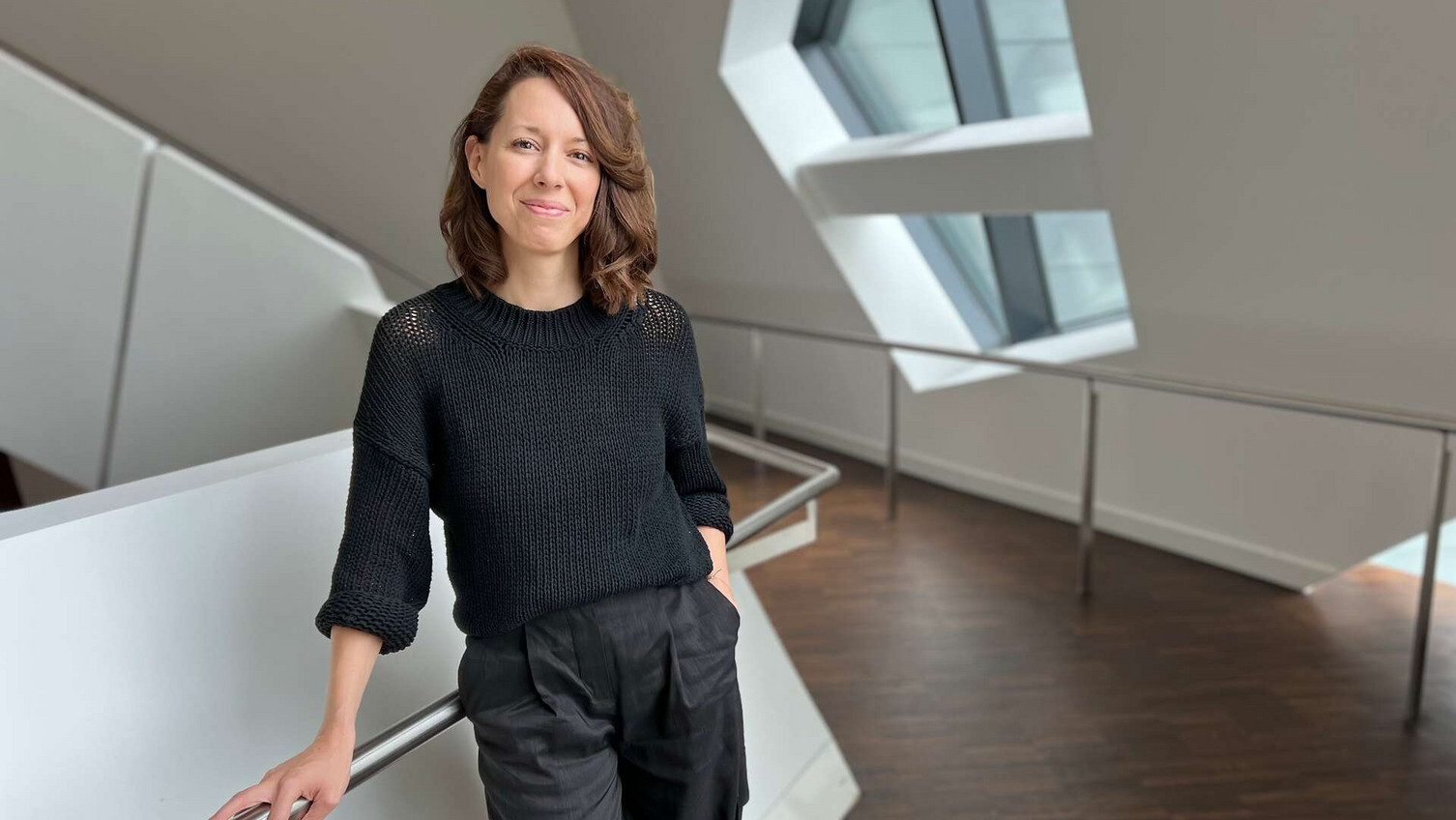New at Leuphana: Prof. Dr Ellen Kollender – "Flight is not an exception"
2024-07-04 The professor of inclusion and diversity is doing research on discrimination, participation, and the inclusive design of educational spaces and institutions in a migration society. She advocates intersectionality-sensitive school development and social pedagogy.
- Why, in your opinion, should schools not be regarded as isolated institutions?
School is a space of social negotiation. Transnational conflicts, wars, and the associated flight migrations are part of the reality of many students. Processes of social pluralisation are often associated with dynamics of racism, antisemitism and right-wing extremism. This also raises questions for schools, education, and social work. In my research, I examine these dynamics, the associated institutional inclusions and exclusions, and the mechanisms, causes, and consequences of discrimination in educational fields of action.
- What role does discrimination play in existing educational inequalities in schools?
In my doctoral thesis, I took a closer look at the relationship between parents and schools in a migration society. When discussing existing educational inequalities in Germany, the reference to the pupils' family background is often not far away. In addition to the 'social background', the 'migration background' of families is often cited in this debate as a key factor influencing the school success of children and young people. This often promotes stereotypical, sometimes classist and racist views of families in underprivileged circumstances and/or with a history of migration. However, these contribute little to explaining educational inequalities. In my work, I have revealed the prevailing preconceptions in schools regarding parents with a history of migration, and reconstructed how these guide the actions of educators and (subtle) exclusions in the school system. These exclusions are also the cause of educational inequalities.
- How should school rankings be assessed in this context?
The performance data published in school rankings suggest that the composition of a school's student body is closely linked to its level of performance. These rankings are also an expression of the school and education reforms of the last 20 years, which – whether intended or not – have contributed to increased competition between schools. In inner-city schools in particular, school management is increasingly asking: how can we position ourselves to perform as well as possible in these rankings? Some schools try to attract particularly high-performing students through so-called cream skimming practices, while supposedly low-performing students are sometimes not even admitted to the schools. Racist logics also come into play here.
- In a current research project, you are investigating how teachers feel prepared for refugee students from Ukraine. How do teachers perceive the situation?
We are examining the situation at secondary schools in various regions of Germany. In doing so, we are also looking at learning processes that have taken place at schools in the wake of the large-scale refugee migrations of the last decade. One of our findings is that many teachers still do not feel well prepared and – despite the challenges of 2015/2016 – experienced the arrival of the refugee students as something that had unexpectedly hit their schools. Thus, the arrival of children and young people from Ukraine is once again not being treated as a matter of course by a school system that still has to adapt to the changing realities of a migration society. Flight is not an exception.
- You are looking at flight migration not only from a national but also from an international perspective. What exactly did you focus on here?
I spent a long time in Istanbul researching the educational situation of refugee children and young people on the border of the European Union. With regard to extracurricular educational projects, one focus was on reconstructing the visions, concepts, and strategies of the educational actors working here with regard to the design of inclusive educational spaces. The inclusion-oriented work of the actors was notably found to collide to some extent with the funding objectives and logics of the EU. I am in dialogue with academic and civil society actors from Germany, Greece, and Turkey on how to support transnational educational biographies of refugee pupils in a way that is sensitive to discrimination across national borders.
- How do you incorporate these observations into your teaching?
In the seminar "Engaged Pedagogy across Borders", for example, we look at the multidimensional educational exclusion of refugee children and young people in EU border areas. So, what does it do to children and young people when they go to school in a refugee camp? Reflecting their situation there as an expression of global injustice, locating myself in these conditions, and incorporating them into the development of my own pedagogical approach, is part of the students' self-reflection task.
- What should prospective teachers and social pedagogues bring along as they embark on their professional careers to develop a critical approach to discrimination?
There is a lot that could be said on this question. Among other things, I think it is important to understand the concept of intersectionality, which sensitises us to the interconnection of forms, experiences, and levels of discrimination, and makes educational action in a migration society a complex task. This is less about technical knowledge and more about developing an attitude. Educational professionals who have been able to develop such an attitude feel much better equipped to deal with the current demands of social transformation.
- Thank you very much for the interview!
Ellen Kollender studied political science and was a doctoral fellow at the Hans Böckler Foundation. Until 2019, she conducted research in the field of intercultural and comparative education at Helmut Schmidt University Hamburg. She then joined Sabancı University in Istanbul as a Mercator IPC Fellow. From May 2022, Ellen Kollender held the professorship for heterogeneity in the Department of General Education at the Rhineland-Palatinate Technical University of Kaiserslautern-Landau. In April 2024, she assumed the junior professorship for inclusion and diversity at Leuphana University Lüneburg.

